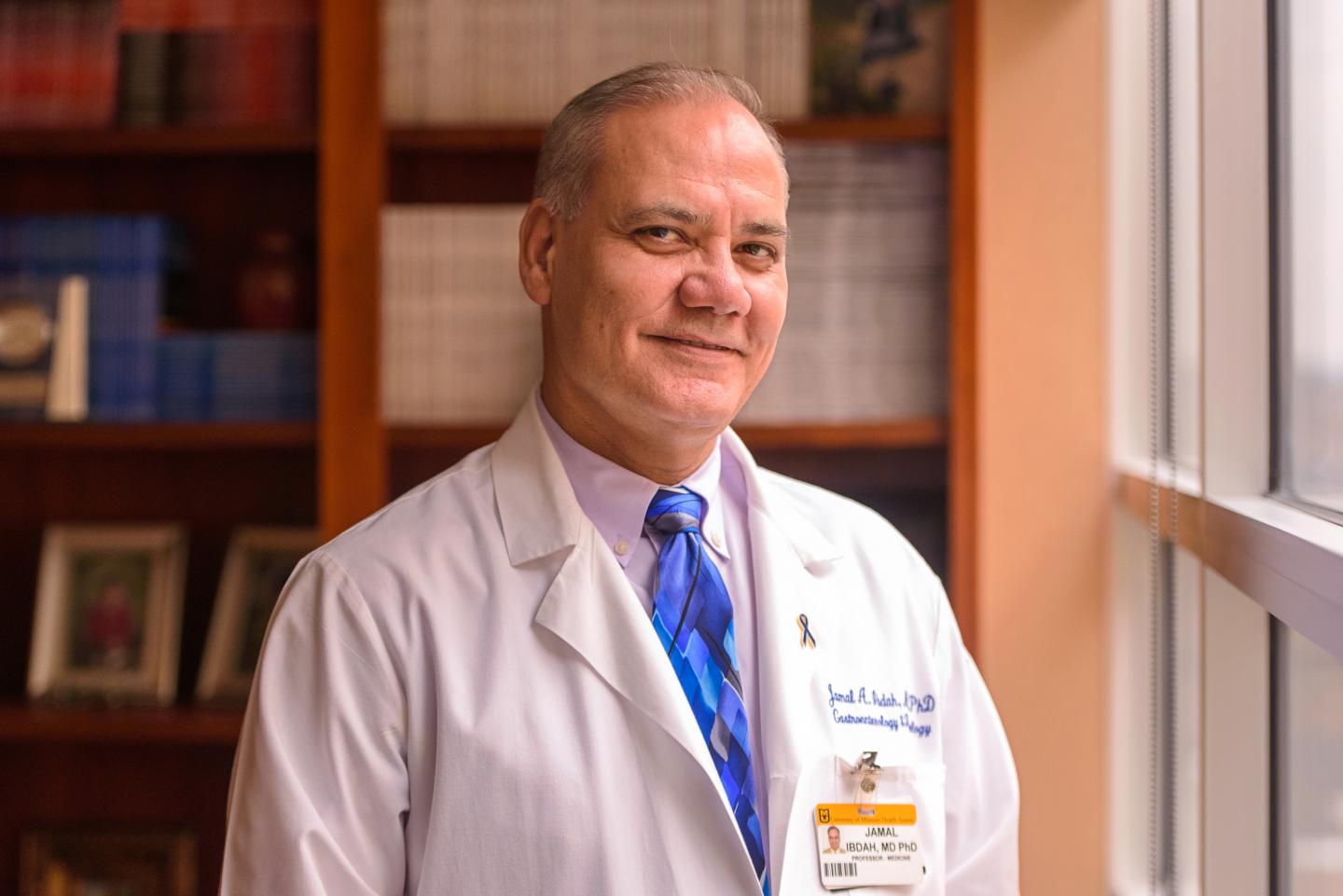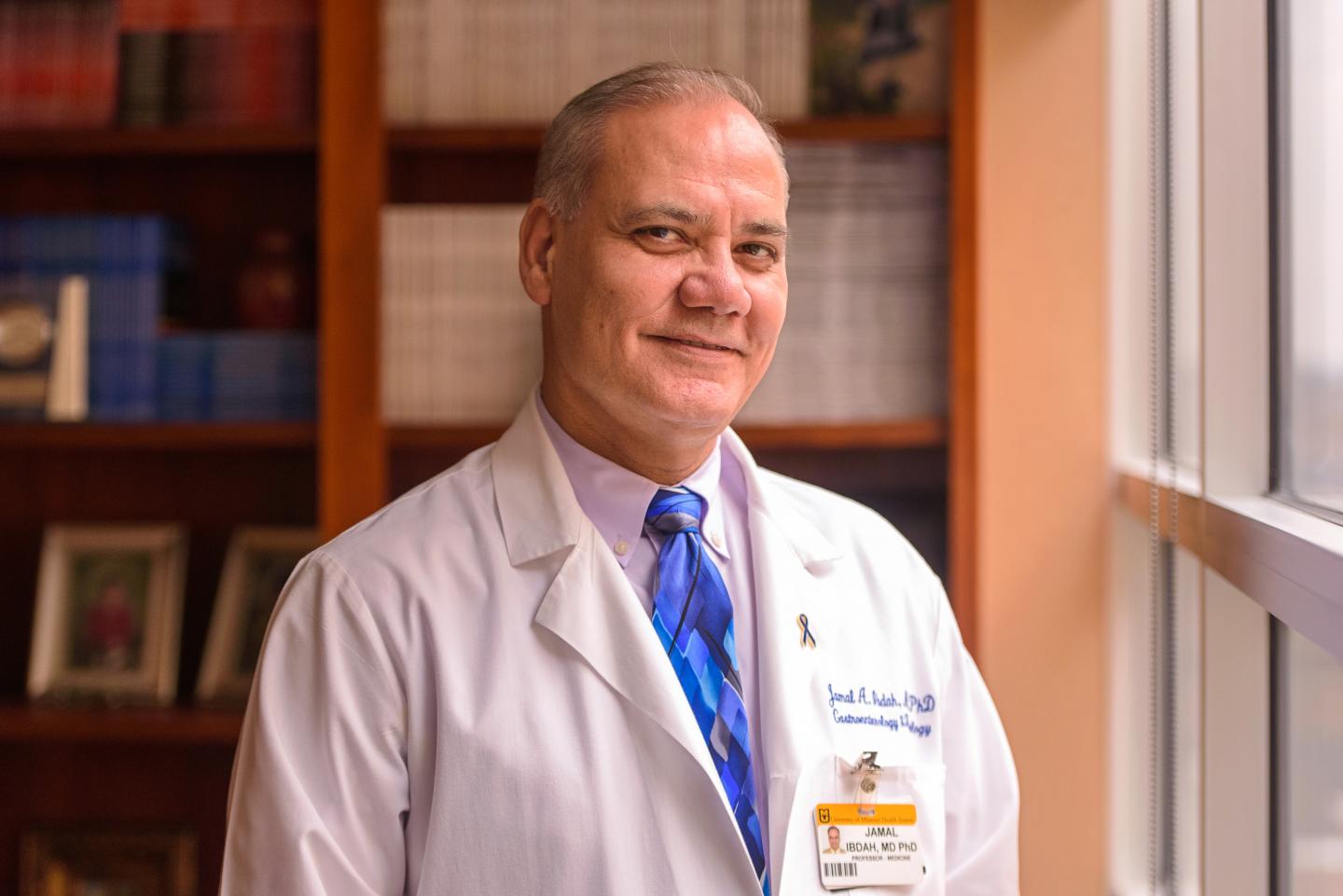
Credit: Justin Kelley, University of Missouri Health
Gallbladder cancer is a rare, but aggressive disease. According to the Centers for Disease Control and Prevention, about 3,700 people in the United States are diagnosed with gallbladder cancer each year. However, of those diagnosed, approximately 2,000 die each year from the disease. A new study by University of Missouri School of Medicine researchers has found that gallbladder cancer rates have decreased in men in recent years but not in women. The researchers also found that more people are being diagnosed with late-stage disease.
"Although gallbladder cancer is a rare gastrointestinal malignancy, it is the most common cancer to affect the organs that control the production, storage and secretion of bile," said Jamal Ibdah, M.D., Ph.D., professor of medicine, Raymond E. and Vaona H. Peck Chair in Cancer Research at the MU School of Medicine and lead author of the study. "It also is a very aggressive disease with poor outcomes because symptoms usually are not present until late-stage, and often is diagnosed incidentally. The purpose of this study was to better understand trends in gallbladder cancer diagnosis and survival on a large scale over the last four decades."
The researchers used the National Cancer Institute's Surveillance Epidemiology and End Results (SEER) database for their observational study. Frequency and rate analysis of demographics, disease stage and survival were compared among Caucasians, Hispanics, African-Americans and Asian/Pacific Islanders. A total of 18,124 cases were analyzed from 1973 to 2009.
"Analysis showed that gallbladder cancer rates have steadily decreased for men since 1973," Ibdah said. "However, this same analysis showed that although the rates for women had been decreasing, this trend stopped in the mid-1990s. Even more alarming was that late-stage diagnosis of gallbladder cancer has been on the rise since 2001 after a decreasing pattern since 1973. The significance is that earlier diagnosis correlates to better outcomes."
Although gallbladder cancer rates are not decreasing in women and more people are being diagnosed with late-stage disease, the researchers did find that those who experienced the highest survival rates were patients who received both surgical and radiation treatment.
"Once a diagnosis was made, our study found that women experienced a higher survival rate than men," Ibdah said. "Asian/Pacific Islanders also had higher survival rates than other races. However, the most significant information about survivability that we gleaned from our study was that a combination of surgery and radiation resulted in the best outcomes."
Although the population covered by the SEER registry program is comparable to the general U.S. population, Ibdah said there were limitations to the study. Of the cases represented in the SEER database, more of the patients were from urban than rural areas. Also, the cases included a higher proportion of foreign-born persons than would normally be found in the general public.
"Definitely more research will be needed to better understand why gallbladder cancer rates are not decreasing for women as they are with men," Ibdah said. "We also need a better understanding of why late-stage diagnosis is on the rise. However, the information in this study will allow us to focus on these areas so that over time and through clinical trials, we may one day develop a cost-effective, evidence-based screening technique to reverse these trends."
###
The study, "Trend Analysis and Survival of Primary Gallbladder Cancer in the United States: A 1973 – 2009 Population-based Study," recently was published in Cancer Medicine. Research reported in this publication was supported by a Raymond E. and Vaona H. Peck endowment to the Department of Medicine, Division of Gastroenterology at the MU School of Medicine. The researchers have no conflicts of interest to declare related to this study.
Note to reporters and editors: Although observational studies cannot provide definitive evidence of safety, efficacy, or effectiveness, they can: 1) provide information on "real world" use and practice; 2) detect signals about the benefits and risks of complementary therapies use in the general population; 3) help formulate hypotheses to be tested in subsequent experiments; 4) provide part of the community-level data needed to design more informative pragmatic clinical trials; and 5) inform clinical practice. ("Observational Studies and Secondary Data Analyses To Assess Outcomes in Complementary and Integrative Health Care. Richard Nahin, Ph.D., M.P.H., Senior Advisor for Scientific Coordination and Outreach, National Center for Complementary and Integrative Health, June 25, 2012)
About the MU School of Medicine
The MU School of Medicine has improved health, education and research in Missouri and beyond for more than 165 years. MU physicians treat patients from every county in the state, and more Missouri physicians received their medical degrees from MU than from any other university. For more information, visit http://medicine.missouri.edu/.
For more news, visit: http://medicine.missouri.edu/news/
Media Contact
Jeff Hoelscher
[email protected]
573-884-1608
@mizzounews
http://www.missouri.edu
############
Story Source: Materials provided by Scienmag




